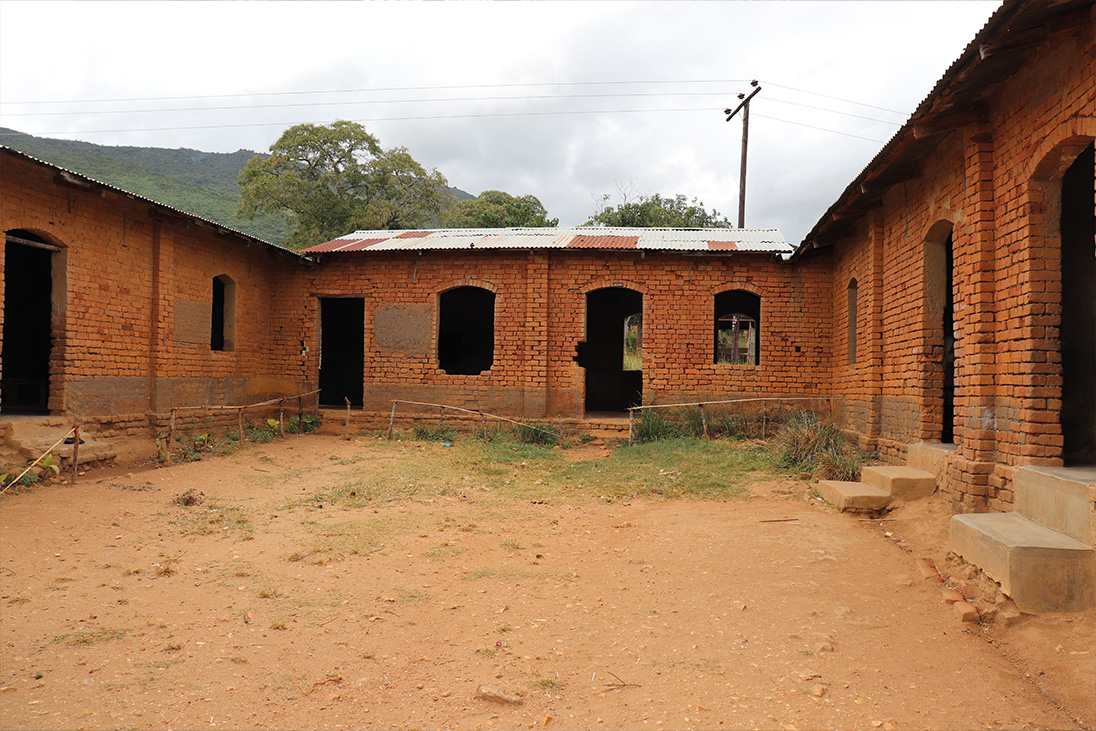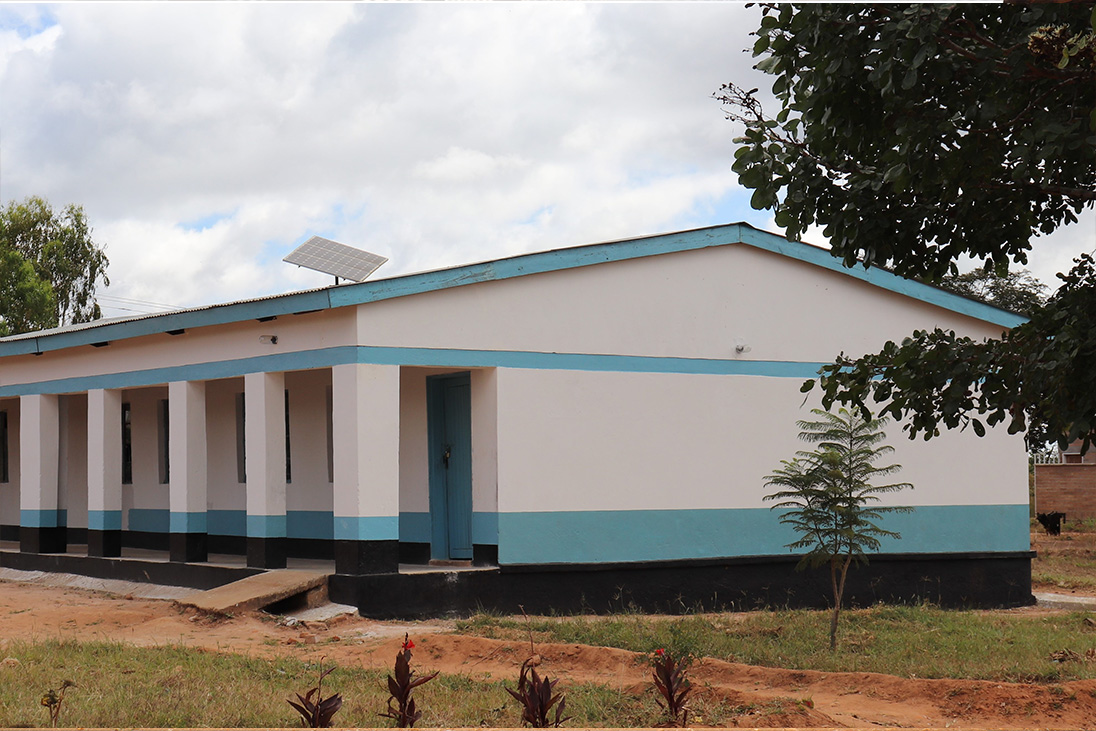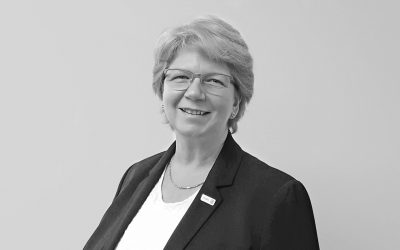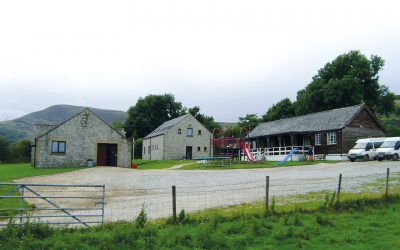Retired couple, Sue and Tony Melia from Rugby, visited Malawi in 2005 on a volunteering trip to teach in a school. This followed a chance conversation between their daughter and a work colleague from the Bwengu area of Northern Malawi.
Malawi is one of the poorest countries in the world. One in ten adults are living with HIV/AIDS and one million children, from a population of 19 million, have been orphaned by the disease.
Listen to this article
With 53% of the population of Malawi below the age of 18 years, the couple set off for Africa with high hopes 16 years ago little realising how the next few weeks would change theirs and their family’s lives forever.


School before refurbishment
They were shocked by the poor classroom facilities with just one book to teach from, so returned home to fund-raise and address some of the problems.
For the next 13 years, Sue and Tony returned to Malawi regularly. The schools, which were in a very poor state started to be renovated. The couple bought building materials and supplies as the local community provided a work force.
Previously, a typical lesson in a Malawi classroom consisted of a teacher writing the lesson onto a poorly maintained blackboard with a class size of up to 150 children and perhaps one or two textbooks available for the whole class.”
Over the years, thanks to the couple’s efforts, more than 26 schools were renovated, decorated, supplied with furniture and provided with textbooks.
The link between a lack of toilet facilities at schools and poor attendance – particularly senior girls – was recognised, so the projects expanded to include the building of toilets.


School after refurbishment was completed
They also started a feeding programme for the many orphans and disadvantaged children, buying maize locally to help their economy. From the beginning, a number of Rotary clubs were supportive, among them Coventry Rotary.
But the overwhelming problem remained – how do you teach so many children who are so eager to learn, with little or no resources?
Through Sue and Tony’s daughter Samantha, and her husband Rob, they developed an idea to use modern technology in the classrooms.
Previously, a typical lesson in a Malawi classroom consisted of a teacher writing the lesson onto a poorly maintained blackboard with a class size of up to 150 children and perhaps one or two textbooks available for the whole class.
Malawi is one of the poorest countries in the world. One in ten adults live with HIV/AIDS and one million children, from a population of 19 million, have been orphaned by the disease.”
Rob developed a prototype kit consisting of an LED projector and Android tablet, with speakers, powered by a car battery and charged with a solar panel. The Whole-Class Teaching Kit was born.
These kits have been used in nine villages, teaching more than 1,000 adults.
They have also reached 19 schools with more than 15,000 children benefiting. Rotary clubs have funded a number of these kits.
The introduction of the Whole Class Teaching Kits has gone hand-in-hand with the continued programme of school renovations. In fact, since 2005, 288 projects have been completed, 98 sponsored by 19 Rotary clubs
The Whole Class Teaching Kit is a simple idea that can transform all manner of learning in any under-resourced country or environment.
For more information follow bwenguprojectsmalawi.org.


























































